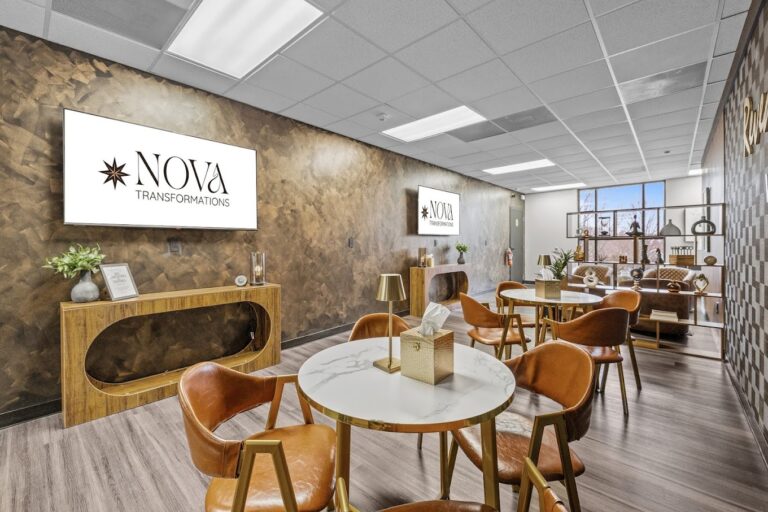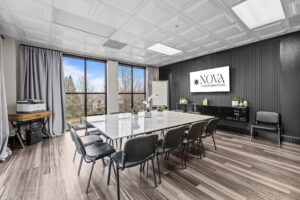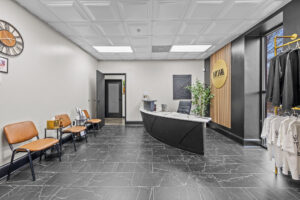
Drug Rehab Raleigh NC: Your Comprehensive Guide to Recovery with Nova Transformations
Drug rehab Raleigh NC resources are essential for families and individuals facing substance use challenges in Wake County and the greater Triangle area. At Nova Transformations (serving Raleigh, Durham, Cary, and surrounding areas from our Charlotte/Matthews location), we provide evidence-based care, specialized opioid treatment, comprehensive dual diagnosis services, and compassionate support that meets you where you are—without judgment.
Educational content only; not medical advice. For emergencies, call 911 or text 988.
The Drug Crisis in Raleigh & Wake County
Drug rehab Raleigh NC services have become critically important as Wake County faces escalating substance use challenges. Raleigh, as the state capital and anchor of the Research Triangle, has experienced significant increases in drug-related emergencies, overdose deaths, and treatment needs in recent years.
According to the Wake County Drug Overdose Prevention Coalition, the region has seen alarming trends in substance use and overdose deaths. The North Carolina Department of Health and Human Services reported a 40% increase in overdose deaths statewide from 2019 to 2020, with nine North Carolinians dying from drug overdoses every day.
Wake County specifically has experienced:
- 356 opioid overdose emergency department visits in 2019, with a 54% increase in opioid overdose deaths from 2019 to 2020
- Nearly 15,000 emergency department visits related to drug overdoses across North Carolina in 2020
- 30% increase in the number of people who survived an overdose and were referred to substance abuse treatment in the past year
- Continued increases in fentanyl-related overdoses, with carfentanil now detected in the local supply
The Wake County Public Health Services emphasizes that these statistics represent real people—friends, family members, neighbors, and community members—who need accessible, effective treatment. The opioid crisis, combined with rising methamphetamine and polysubstance use, has created urgent demand for quality drug rehab Raleigh NC resources.
For comprehensive state-level data, see the North Carolina Opioid Settlement Data Dashboard and the NC DHHS Mental Health & Substance Use Resources.
Most Commonly Abused Drugs in Raleigh
Understanding the specific substances affecting the Raleigh community helps families recognize risks and seek appropriate treatment. Common drugs of abuse in Wake County include:
Opioids
The most pressing concern in Raleigh and across North Carolina. Opioids include:
- Prescription painkillers: OxyContin, Vicodin, Percocet, hydrocodone, morphine
- Heroin: Illicit opioid increasingly contaminated with fentanyl
- Fentanyl: Synthetic opioid 50-100 times stronger than morphine, now found in counterfeit pills
- Carfentanil: Extremely potent synthetic opioid recently detected in Wake County
Nova Transformations specializes in fentanyl addiction treatment and heroin addiction treatment with medication-assisted treatment (MAT) options.
Stimulants
- Methamphetamine (meth): Highly addictive stimulant causing severe physical and psychological effects
- Cocaine: Powerful stimulant with significant overdose risk, especially when mixed with opioids
- Prescription stimulants: Adderall, Ritalin misused beyond medical purposes
Alcohol
Despite being legal, alcohol remains one of the most dangerous substances. According to the SAMHSA Raleigh-Durham-Cary data, 21.8% of adults in Wake County reported binge drinking. Nova offers comprehensive alcohol rehabilitation services.
Benzodiazepines
Prescription anti-anxiety medications (Xanax, Valium, Klonopin, Ativan) that are highly addictive and dangerous when combined with opioids or alcohol. Withdrawal can be life-threatening without medical supervision.
Marijuana
While debates continue about legalization, marijuana use disorder is real. According to SAMHSA data, 14.6% of adults in Wake County reported marijuana use, with some individuals developing dependence requiring treatment.
Polysubstance Use
Increasingly common, polysubstance use (combining multiple drugs) significantly increases overdose risk and complicates treatment. Nova’s clinical team has specialized training in addressing complex polysubstance use patterns.
Warning Signs & Symptoms of Drug Addiction
Early intervention saves lives. The Wake County Public Health emphasizes recognizing warning signs before substance use escalates to life-threatening levels.
Behavioral Warning Signs
- Sudden changes in friend groups or social circles
- Loss of interest in previously enjoyed activities, hobbies, or sports
- Declining performance at work or school; increased absenteeism
- Secretive behavior, lying, or being evasive about whereabouts
- Unexplained need for money; financial problems; stealing
- Legal problems related to substance use
- Neglecting responsibilities at home, work, or school
- Continued use despite negative consequences
Physical Warning Signs
- Bloodshot eyes, dilated or constricted pupils
- Changes in appetite or sleep patterns
- Sudden weight loss or gain
- Deterioration in physical appearance or hygiene
- Unusual smells on breath, body, or clothing
- Tremors, slurred speech, or impaired coordination
- Frequent nosebleeds (cocaine use)
- Track marks or bruises (injection drug use)
Psychological Warning Signs
- Unexplained personality or mood changes
- Increased anxiety, paranoia, or fear
- Depression or lack of motivation
- Irritability, anger, or aggressive behavior
- Appearing fearful, withdrawn, or “spaced out”
- Periods of unusual hyperactivity or agitation
- Lack of emotional regulation
Overdose Warning Signs – Call 911 Immediately
If you observe these signs, call 911 immediately. North Carolina’s Good Samaritan Law protects those who call for help during an overdose.
- Unconsciousness or inability to wake someone
- Slow, shallow, or no breathing
- Blue or purple lips or fingernails
- Pale or clammy skin
- Gurgling, choking, or snoring sounds
- Vomiting or foaming at the mouth
- Slow or no pulse
- Limp body or stiff muscles
Free naloxone (Narcan) is available throughout Wake County at the Wake County Public Health Pharmacy (10 Sunnybrook Road, Raleigh) Monday-Friday, 8:30 a.m.–5:15 p.m., and at pharmacies statewide without a prescription under NC’s Standing Order.
Why Professional Drug Rehab in Raleigh NC?
While some people attempt to quit drugs independently, professional treatment at a drug rehab Raleigh NC facility significantly improves success rates and reduces risks. Here’s why:
Medical Safety During Withdrawal
Withdrawal from opioids, benzodiazepines, and alcohol can be medically dangerous or life-threatening. Professional facilities provide 24/7 medical monitoring, FDA-approved medications to ease withdrawal symptoms, and immediate intervention for complications. Attempting to detox at home can be dangerous and often leads to relapse or medical emergencies.
Evidence-Based Treatment Approaches
Quality drug rehab Raleigh NC programs use therapies proven effective through rigorous scientific research, including Cognitive Behavioral Therapy (CBT), Dialectical Behavior Therapy (DBT), Motivational Interviewing, trauma-informed care, and medication-assisted treatment (MAT). These approaches address both the physical dependence and psychological aspects of addiction.
Addressing Root Causes & Co-Occurring Conditions
Approximately 50% of individuals with substance use disorders also struggle with mental health conditions like depression, anxiety, PTSD, or bipolar disorder. Professional treatment identifies and treats these co-occurring conditions simultaneously through specialized dual diagnosis programming—essential for lasting recovery.
Structured, Supportive Environment
Treatment removes you from triggering environments, unhealthy relationships, and easy access to substances. This creates space to focus entirely on healing, learning new coping skills, and building a foundation for recovery without the daily stressors that contributed to substance use.
Peer Support & Community
Connecting with others facing similar challenges reduces isolation and shame. Group therapy, peer support, and building relationships with others in recovery provide hope, practical insights, accountability, and a sense of belonging that sustains long-term sobriety.
Relapse Prevention Skills
Professional treatment teaches specific, practical skills for managing cravings, avoiding triggers, coping with stress, and responding to high-risk situations. These skills are essential for maintaining recovery after leaving treatment.
Family Healing & Education
Addiction affects entire families. Quality programs provide family therapy, education about addiction as a disease, and tools for families to support recovery while maintaining healthy boundaries. Family involvement significantly improves long-term outcomes.
Levels of Care: Detox, Inpatient, PHP, IOP, Outpatient
Drug rehab Raleigh NC facilities offer various levels of care to meet individuals at different stages of recovery. Understanding these levels helps you choose the appropriate starting point:
Medical Detoxification (Detox)
Medically supervised withdrawal management in a hospital or specialized detox facility, typically lasting 3-7 days. Detox addresses physical dependence through medication and 24/7 monitoring. While Nova Transformations does not provide on-site detox, we coordinate with quality detox facilities in the Raleigh area and arrange seamless transitions to our treatment programs.
Residential/Inpatient Treatment
24-hour care in a residential setting, typically lasting 30-90 days. Provides intensive therapy, medical monitoring, structured daily schedules, and comprehensive support. Best for individuals needing maximum structure, those with severe addiction, unstable housing, or significant co-occurring mental health conditions.
Partial Hospitalization Program (PHP)
Intensive structured treatment 5-6 days per week, typically 6+ hours daily. Clients return home evenings, allowing some connection to normal life while receiving intensive care. Nova Transformations offers PHP for Raleigh-area residents who need high-level support but can safely return home each night. PHP typically runs 30-60 days.
Intensive Outpatient Program (IOP)
Treatment 3-5 days per week, typically 3 hours per session. Allows individuals to maintain work, school, or family responsibilities while receiving evidence-based care. Nova’s IOP serves Raleigh residents with flexible scheduling, including evening options. Programs typically last 8-12 weeks but can be extended based on progress and needs.
Outpatient Treatment (OP)
Less intensive care, typically 1-3 sessions weekly. Appropriate for step-down care after PHP/IOP or for individuals with strong support systems and lower-risk substance use patterns. Includes ongoing individual therapy, group therapy, relapse prevention, and recovery maintenance.
Medication-Assisted Treatment (MAT)
FDA-approved medications combined with counseling and behavioral therapies for treating opioid, alcohol, and other substance use disorders. Medications include:
- For Opioid Use Disorder: Buprenorphine (Suboxone), methadone, naltrexone
- For Alcohol Use Disorder: Naltrexone, acamprosate, disulfiram
Research shows MAT significantly improves outcomes, reduces overdose risk, and increases treatment retention. Nova’s medical team provides comprehensive MAT services.
Aftercare & Continuing Support
Ongoing support after formal treatment including alumni groups, 12-step programs (AA, NA), SMART Recovery, individual therapy, sober living arrangements, and regular check-ins. Aftercare is critical for long-term recovery success.
The appropriate level of care is determined through comprehensive assessment by qualified clinicians considering substance use history, medical needs, mental health, living environment, support system, previous treatment, and personal goals.
Dual Diagnosis: Treating Addiction & Mental Health Together
One of Nova Transformations’ core strengths is our specialized dual diagnosis treatment program. Research consistently shows that approximately 50% of individuals with substance use disorders also experience co-occurring mental health conditions.
Common co-occurring conditions include:
- Depression: Major depressive disorder, persistent depressive disorder
- Anxiety Disorders: Generalized anxiety disorder, panic disorder, social anxiety
- Post-Traumatic Stress Disorder (PTSD): Often drives self-medication with substances
- Bipolar Disorder: Mood swings can trigger substance use; substances worsen mood instability
- Attention-Deficit/Hyperactivity Disorder (ADHD): Increased risk of substance use, especially stimulants
- Eating Disorders: Often co-occur with substance use disorders
- Personality Disorders: Borderline personality disorder, antisocial personality disorder
Why Integrated Treatment Is Essential
Many individuals use drugs to self-medicate mental health symptoms—to numb emotional pain, escape traumatic memories, manage anxiety, or cope with depression. Treating only the addiction without addressing underlying mental health conditions typically leads to relapse, as the person returns to substances to manage untreated symptoms.
Conversely, treating mental health conditions without addressing substance use is equally ineffective. Active substance use interferes with psychiatric medications, worsens mental health symptoms, and prevents emotional healing.
The North Carolina Department of Health and Human Services emphasizes integrated treatment as the gold standard. Nova’s approach includes:
- Comprehensive psychiatric evaluation and accurate diagnosis
- Medication management by experienced prescribers when clinically appropriate
- Evidence-based therapies addressing both conditions simultaneously (CBT, DBT, trauma therapy)
- Specialized trauma-informed care for PTSD and trauma-related conditions
- Skills training for managing both substance use and mental health symptoms
- Coordinated care with outside providers (psychiatrists, primary care) as needed
- Family education about co-occurring conditions
Nova’s clinical team includes licensed clinicians, psychiatrists, and counselors with specialized training in dual diagnosis treatment, ensuring clients receive expert care for all aspects of their health.
Nova’s Approach: Evidence-Based & Holistic Treatment
As a premier drug rehab facility serving Raleigh NC and the Triangle area, Nova Transformations stands out through our comprehensive, person-centered approach:
Evidence-Based Clinical Excellence
Our clinical programming employs therapies with strong research support:
- Cognitive Behavioral Therapy (CBT): Identifying and changing thought patterns and behaviors that contribute to substance use
- Dialectical Behavior Therapy (DBT): Building skills for emotional regulation, distress tolerance, mindfulness, and interpersonal effectiveness
- Motivational Interviewing: Strengthening internal motivation for change and resolving ambivalence
- Trauma-Informed Care: Addressing the profound impact of trauma on addiction and mental health
- Relapse Prevention: Developing personalized strategies for identifying triggers and maintaining recovery
- Medication-Assisted Treatment (MAT): FDA-approved medications combined with therapy for optimal outcomes
- Group Therapy: Facilitated by experienced clinicians, building community and accountability
- Individual Counseling: One-on-one sessions addressing personal challenges, goals, and barriers
Holistic Wellness Integration
Recovery involves healing the whole person—mind, body, and spirit. Nova integrates complementary approaches:
- Nutrition Education & Support: Understanding how proper nutrition supports brain health, mood stability, and recovery
- Fitness & Physical Wellness: Access to gym facilities, yoga classes, outdoor activities promoting overall health
- Experiential Therapies: Art therapy, music therapy, equine therapy, and other creative modalities for processing emotions
- Mindfulness & Meditation: Techniques for managing cravings, reducing anxiety, improving focus, and developing emotional awareness
- Recreational Activities: Structured outings and activities throughout North Carolina creating positive memories and demonstrating joy in sobriety
- Life Skills Development: Budgeting, time management, job readiness, communication skills
Family-Centered Care
We recognize addiction as a family disease requiring family healing:
- Family therapy sessions addressing communication, boundaries, and relationship repair
- Family education programs about addiction science, recovery process, and how to support loved ones
- Support and resources for family members’ own healing and recovery
- Scheduled family visitation promoting healthy connection
- Referrals to Al-Anon, Nar-Anon, and other family support groups
Individualized Treatment Planning
Every client receives a personalized treatment plan developed collaboratively with our clinical team. Plans consider:
- Specific substances used and patterns of use
- Co-occurring mental health conditions
- Medical history and current health status
- Trauma history and its impact
- Family dynamics and relationships
- Work, school, and life responsibilities
- Personal strengths, values, and goals
- Previous treatment experiences and what worked/didn’t work
- Cultural, spiritual, and identity factors
Treatment plans are reviewed and adjusted regularly throughout care to ensure optimal progress and address emerging needs.
Qualified, Compassionate Staff
Nova employs licensed clinicians, certified addiction counselors, medical professionals, and support staff who meet or exceed North Carolina credentialing requirements. Many team members have personal recovery experience, bringing authenticity, hope, and lived understanding to their work. Our staff is our greatest asset—dedicated professionals who genuinely care about each client’s success.
Costs & Insurance: What Raleigh Residents Should Know
Cost concerns should never prevent someone from seeking life-saving treatment. Nova Transformations works to make quality drug rehab accessible to Raleigh NC residents through various payment options:
Insurance Coverage
We accept most major insurance providers and work with Managed Care Organizations (MCOs). The Mental Health Parity and Addiction Equity Act (MHPAEA) requires insurance plans to cover substance use disorder treatment at levels comparable to other medical conditions.
Insurance typically covers:
- Comprehensive assessment and diagnosis
- Medical detoxification services
- Inpatient/residential treatment
- Partial hospitalization (PHP)
- Intensive outpatient (IOP) and outpatient services
- Individual and group therapy
- Medication-assisted treatment (MAT)
- Family therapy sessions
- Psychiatric services and medication management
Coverage varies significantly by insurance plan, deductible, and benefits. Use our Verify Insurance form or call (704) 420-7686 for a free, confidential benefits check. Our admissions team will explain your coverage, any out-of-pocket costs, and help you understand all options.
Options for Raleigh Residents Without Insurance
If you don’t have insurance or have limited coverage:
- Medicaid: North Carolina Medicaid expansion (launched December 2023) has significantly increased coverage for addiction treatment. Check eligibility at NC DHHS Medicaid
- Private Pay: Self-payment options with flexible payment plans
- State-Funded Programs: North Carolina offers state-funded treatment services for eligible residents. Contact NC DHHS
- Wake County Resources: Wake County treatment services can connect you with local options
- Sliding Scale Facilities: Some programs adjust fees based on income
What Does Treatment Cost?
Without insurance, treatment costs vary widely:
- Outpatient (OP): $1,000-$5,000 per month
- Intensive Outpatient (IOP): $3,000-$10,000 per month
- Partial Hospitalization (PHP): $5,000-$15,000 per month
- Residential/Inpatient: $10,000-$30,000+ per month
While these costs seem high, consider the long-term costs of untreated addiction: lost employment, legal fees, medical emergencies, broken relationships, and ultimately, the priceless cost of a life lost to overdose. Treatment is an investment in your future, your health, and your life.
Raleigh & Wake County Local Resources
Beyond professional treatment at a drug rehab Raleigh NC facility, comprehensive recovery involves connection to community resources:
Wake County & Raleigh Resources
- Wake County Drug Overdose Prevention Coalition — Local prevention and response coordination
- Wake County Treatment Services & Recovery — Local treatment providers and resources
- Wake County Public Health Pharmacy — 10 Sunnybrook Road, Raleigh — Free naloxone kits Monday-Friday, 8:30 a.m.–5:15 p.m.
- Wake County Education & Outreach — Prevention education and community resources
- Alliance Health — Managed care organization for public behavioral health care in Wake, Durham, Cumberland, and Johnston counties
Raleigh Area Treatment Providers
- WakeBrook — Behavioral health campus in Raleigh offering continuum of services
- Healing Transitions — Recovery and reentry programs with Rapid Responder Post Overdose Response Team
- Western Wake Treatment Center — Outpatient treatment specializing in opioid rehabilitation
- First Step Services — Intensive outpatient, telehealth, MAT, and continuing care
- Carolina Recovery — Drug treatment and rehabilitation services
North Carolina State Resources
- NC DHHS Mental Health & Substance Use Resources — Statewide services and information
- North Carolina Opioid Settlement Data Dashboard — Tracking the opioid epidemic
- NC 2-1-1: Dial 211 for 24/7 information and referral services
- Hope4NC Helpline: 1-855-587-3463 — Confidential emotional support and referrals
National Resources
- SAMHSA National Helpline: 1-800-662-HELP (4357) — Free, confidential, 24/7 treatment referral
- 988 Suicide & Crisis Lifeline: Call or text 988 for immediate crisis support
- SAMHSA Treatment Locator — Find treatment facilities nationwide
- Crisis Text Line: Text HOME to 741741 for 24/7 crisis support
Recovery Support Groups (Raleigh/Wake County)
- Narcotics Anonymous (NA): na.org — Find local meetings
- Alcoholics Anonymous (AA): aa.org — 12-step support for alcohol addiction
- SMART Recovery: smartrecovery.org — Science-based alternative to 12-step
- Nar-Anon & Al-Anon: Support for families and friends of those with addiction
- Celebrate Recovery: celebraterecovery.com — Faith-based recovery support
- Recovery Communities of North Carolina: Nonprofit promoting recovery, wellness, and citizenship
Harm Reduction Resources
- NC Harm Reduction Coalition: Statewide organization implementing harm reduction interventions
- Syringe Services Programs: Available in Wake County and throughout NC
- Fentanyl Test Strips: Available through harm reduction programs
- Naloxone (Narcan): Available at pharmacies statewide without prescription under NC Standing Order
Special Populations
- Recovery Court Program: Drug treatment court for adults in the criminal justice system
- Recovery High School: Raleigh’s recovery high school for adolescents overcoming addiction
- Veterans Resources: VA services for veterans with substance use disorders
How to Choose the Right Drug Rehab in Raleigh
Selecting the right drug rehab Raleigh NC facility is a critical decision that significantly impacts recovery success. Consider these factors:
1. Accreditation & Licensing
Verify the facility is licensed by North Carolina and accredited by recognized organizations (The Joint Commission, CARF, LegitScript). Accreditation ensures adherence to evidence-based practices, safety standards, and quality care.
2. Evidence-Based Treatment Approaches
Ask what therapies and treatment methods are used. Quality programs employ evidence-based practices proven effective through research—CBT, DBT, MAT, trauma therapy—not unproven or experimental methods. Be wary of programs promising “cures” or relying solely on non-traditional approaches.
3. Specialized Programs for Your Substance
Different substances require different approaches. If you’re struggling with opioid addiction, ensure the facility offers medication-assisted treatment (MAT). For stimulant use, look for programs with expertise in methamphetamine or cocaine addiction. For polysubstance use, find facilities with experience treating complex patterns.
4. Dual Diagnosis Capability
If you have or suspect co-occurring mental health conditions (depression, anxiety, PTSD, bipolar disorder), ensure the facility has:
- Licensed mental health professionals on staff
- Psychiatric services and medication management
- Integrated dual diagnosis programming
- Experience treating your specific mental health condition
5. Staff Credentials & Experience
Inquire about staff qualifications. Look for:
- Licensed clinical social workers (LCSW), licensed professional counselors (LPC), psychologists
- Certified addiction counselors (LCAS in NC)
- Medical doctors, nurse practitioners, or physician assistants
- Staff-to-client ratios ensuring adequate individual attention
- Continuing education and training in latest treatment methods
6. Individualized Treatment Planning
Avoid “one-size-fits-all” programs. Quality facilities conduct comprehensive assessments and develop personalized treatment plans based on your unique:
- Substance use history and current patterns
- Mental and physical health conditions
- Trauma history
- Family dynamics
- Cultural, spiritual, and identity factors
- Personal strengths and goals
7. Family Involvement Opportunities
Research consistently shows family involvement improves outcomes. Look for programs offering:
- Family therapy sessions
- Family education programs
- Regular family communication opportunities
- Resources for families’ own healing
- Scheduled family visits
8. Comprehensive Aftercare Planning
Recovery doesn’t end when formal treatment concludes. Ask about:
- Aftercare planning process
- Alumni support programs
- Continuing care options
- Connections to community resources and support groups
- Sober living referrals if needed
- Follow-up check-ins post-discharge
9. Location Considerations
Some people benefit from treatment close to home for family involvement and community connection. Others need distance from triggering environments. Consider what’s best for your situation. Nova Transformations serves Raleigh residents from our Charlotte/Matthews location—far enough for a fresh start, close enough for family visits.
10. Facility Environment & Amenities
Visit if possible or request a virtual tour. The environment should feel:
- Safe, clean, and well-maintained
- Comfortable and conducive to healing
- Professional yet welcoming
- Appropriately structured (not too institutional, not too lax)
Trust your instincts about whether it feels like the right fit.
11. Success Measures & Outcomes
While recovery is complex and success looks different for everyone, quality programs track outcomes and can share:
- Completion rates
- Client satisfaction data
- Follow-up sobriety rates
- Testimonials from former clients and families
Be wary of facilities making unrealistic promises or refusing to discuss outcomes.
12. Cost Transparency
Reputable facilities will:
- Verify your insurance benefits upfront
- Clearly explain all costs and fees
- Discuss payment options transparently
- Never use high-pressure sales tactics
- Put financial agreements in writing
13. Red Flags to Watch For
Avoid facilities that:
- Guarantee success or promise “cures”
- Use primarily non-evidence-based or alternative therapies
- Have unlicensed or under-qualified staff
- Refuse to discuss their approach, credentials, or outcomes
- Use aggressive marketing or high-pressure sales tactics
- Lack proper licensing or accreditation
- Have numerous negative reviews citing safety concerns
- Don’t conduct thorough assessments before admission
Frequently Asked Questions
Q: What drugs does Nova Transformations treat?
Nova provides comprehensive treatment for all substance use disorders including opioids (heroin, fentanyl, prescription painkillers), stimulants (methamphetamine, cocaine), alcohol, benzodiazepines, marijuana, and polysubstance use. We offer specialized programs including medication-assisted treatment (MAT) for opioid and alcohol use disorders.
Q: Do I need detox before starting treatment at Nova?
It depends on your substance use patterns, last use, physical health, and withdrawal risk. While Nova doesn’t provide on-site detox, our admissions team conducts thorough assessments to determine if medical detox is needed. We maintain relationships with quality detox facilities in the Raleigh and Charlotte areas and coordinate seamless transitions to our treatment programs once detox is complete.
Q: How long does drug rehab treatment last?
Treatment duration varies based on individual needs, substance use severity, co-occurring conditions, and personal goals. Partial Hospitalization Programs (PHP) typically run 30-60 days. Intensive Outpatient Programs (IOP) usually last 8-12 weeks but can be extended. Outpatient treatment may continue for several months. Our clinical team continuously assesses progress and adjusts treatment duration as needed for optimal outcomes.
Q: Does Nova offer medication-assisted treatment (MAT)?
Yes. Nova provides comprehensive medication-assisted treatment using FDA-approved medications including buprenorphine (Suboxone), naltrexone, and coordination with methadone programs for opioid use disorder, as well as naltrexone, acamprosate, and disulfiram for alcohol use disorder. MAT is always combined with counseling and behavioral therapies. Our medical team works with each client to determine if MAT is clinically appropriate for their situation.
Q: Can you treat co-occurring mental health conditions?
Absolutely. Dual diagnosis treatment is one of Nova’s core specialties. We treat depression, anxiety, PTSD, bipolar disorder, ADHD, eating disorders, and other mental health conditions alongside substance use disorders. Our team includes licensed mental health professionals and psychiatric providers who deliver integrated treatment addressing both conditions simultaneously—essential for lasting recovery.
Q: Is treatment confidential?
Yes. Nova strictly follows HIPAA (Health Insurance Portability and Accountability Act) regulations and applicable North Carolina laws protecting client privacy. All information shared in treatment is confidential. We discuss any releases of information only with your written consent, except in specific situations where safety concerns or legal requirements mandate disclosure. Your privacy is our priority.
Q: What insurance do you accept for Raleigh residents?
We accept most major insurance providers including Aetna, BlueCross BlueShield, Cigna, United Healthcare, and many others. We also work with North Carolina Medicaid and various Managed Care Organizations (MCOs). Use our Verify Insurance form or call (704) 420-7686 for a free, confidential benefits check. Our admissions team will explain your specific coverage and any out-of-pocket costs.
Q: Can I work or go to school during treatment?
Our Intensive Outpatient Program (IOP) is designed specifically to allow individuals to maintain work, school, or family responsibilities while receiving evidence-based treatment. Sessions are scheduled in afternoon or evening to accommodate work and school schedules. Partial Hospitalization (PHP) requires more intensive daytime commitment but clients return home evenings. Our admissions team can help determine which level of care balances your treatment needs with other obligations.
Q: Do you involve family in treatment?
Yes. Family involvement is strongly encouraged and considered essential for optimal outcomes. We offer family therapy sessions, family education programs about addiction and recovery, scheduled family visits, and resources to support families’ own healing. We recognize that addiction affects entire families, and recovery is most successful when families heal together. We welcome family participation throughout treatment.
Q: What happens after I complete treatment?
Comprehensive aftercare planning is built into our program. Before completing treatment, we develop a detailed aftercare plan including connections to local Raleigh/Wake County support groups (NA, AA, SMART Recovery), ongoing individual therapy, alumni support programs, regular follow-up check-ins, sober living referrals if needed, and other resources tailored to your situation. Our goal is ensuring you have a strong support system for long-term recovery success.
Q: Where is Nova Transformations located?
Nova Transformations is located in Matthews (Charlotte metro area) at 3326 Siskey Pkwy, Suite 300, Matthews, NC 28105. While we’re based in the Charlotte area, we serve clients throughout North Carolina including Raleigh, Durham, Cary, and all of Wake County. The location provides distance from triggering environments in Raleigh while remaining accessible for family visits. Many Raleigh-area clients find this distance beneficial for their recovery.
References & External Sources
The information in this guide is supported by reputable sources including government agencies, peer-reviewed research, local Wake County organizations, and state health departments. Nova Transformations provides educational content only; this is not medical advice.
- Wake County — Drug Overdose Prevention Coalition • Treatment Services & Recovery • Education & Outreach
- North Carolina DHHS — Mental Health & Substance Use Resources • Overdose Deaths Press Release
- NC Opioid Data — Opioid Settlement Data Dashboard
- SAMHSA — Find Help & Treatment • Treatment Locator • Raleigh-Durham-Cary Metro Brief
- Nova Transformations — About Our Services • Substance Misuse Treatment • Dual Diagnosis Program
Outbound links are for education; Nova does not control or endorse third-party content.
Your Recovery Journey Starts with One Call
You don’t have to face drug addiction alone. Whether you’re in Raleigh, Durham, Cary, or anywhere in Wake County, Nova Transformations is here to help. Our compassionate team will listen without judgment, answer your questions, and help you plan next steps that fit your life. Recovery is possible, and we’re here to guide you every step of the way.








